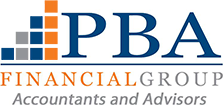Extended director penalty regime to catch out ‘zombie companies’
Directors of companies struggling through COVID-19 conditions could be at particular risk of the recently expanded director penalty notice regime, warns one tax lawyer.

Rigby Cooke Lawyers tax counsel Tamara Cardan has now warned directors of their heightened risk of personal exposure under the recent extension of the director penalty notice (DPN) regime, which kicked in at the height of the coronavirus pandemic.
Since 1 April, the DPN regime has been extended to GST, luxury car tax (LCT) and wine equalisation tax (WET) liabilities.
“The expansion of the regime to GST may catch out many more companies, in particular SMEs, which are right now simply trying to keep afloat and stay in business in these unprecedented times,” Ms Cardan told Accountants Daily.
“Directors are managing significant financial pressures, employee retention issues and a myriad of other urgent matters. In this context, it is logical that compliance with the director penalty regime is not at the forefront of people’s minds.”
With BAS lodgements for the first quarter under the extended DPN regime due soon, and the ATO eyeing a restart of its debt and lodgement intervention activities over the next couple of months, Ms Cardan believes directors need to begin being actively involved in the compliance and reporting activities of their business.
“Directors of ‘zombie companies’ will be at particular risk of exposure under the DPN regime, especially when the government’s support measures cease, and the company is not generating enough income to pay its tax debts. It is anticipated that many ‘zombie companies’ may go into administration, potentially leaving directors exposed under the DPN regime,” Ms Cardan said.
“Where a director has been issued with a DPN, placing the company into administration may actually be a way to satisfy his or her personal liability to the unpaid tax debts.
“However, this option will only be available where BAS lodgements have been made within three months of the relevant due date. If this time frame is not met and a DPN is issued, even if a company goes into administration, the director must still pay the tax debts to satisfy their personal liability.”
Ms Cardan also noted that director resignations would be ineffective in avoiding personal liability, with clients urged to engage with the ATO early to avoid tougher action down the line.
“If a director resigns from their company before a DPN is issued, the ATO may still subsequently issue a DPN to this individual. The key to mitigating personal exposure under the DPN regime is to have good internal reporting systems and timely lodgements,” she said.
“If your client’s business is experiencing financial difficulties and cannot satisfy its tax debts, I would recommend early engagement with the ATO to manage these liabilities. An open and co-operative relationship in most instances would prevent the ATO from taking stronger compliance action.”
Jotham Lian
27 July 2020
accountantsdaily.com.au
